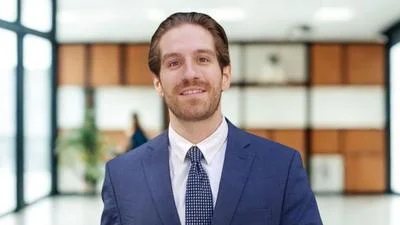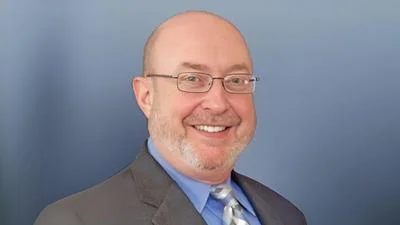Richard Porter, former National Committeeman of the Republican Party of Illinois and retired partner at Kirkland & Ellis | Wirepoints.org
Richard Porter, former National Committeeman of the Republican Party of Illinois and retired partner at Kirkland & Ellis | Wirepoints.org
Illinois conservatives say Big Tech censorship persists, despite Meta CEO Mark Zuckerberg’s January announcement that Facebook would end its U.S. fact-checking program in favor of a more transparent, user-led model.
Former Republican National Committeeman Richard Porter refers to it as a “wild, wild west” digital environment, where social media platforms are being used to silence political opponents—despite recent pledges from tech giants like Meta to support free speech.
Porter, an attorney who retired as partner at Kirkland & Ellis law in Chicago, is currently considering a run for U.S. Senate in Illinois to replace retiring Democrat Dick Durbin.
“If there is a post that they feel violates their community standards, whatever they may be—they're sort of vague and it's not really clear what they are—then that post itself should be removed instead of the entire account being shut down,” Porter told Chicago City Wire. “There's this collateral effect that arises from their failure to be targeted about it.”
Porter said ongoing censorship highlights a deeper structural issue in how Big Tech platforms manage online speech, where users are often left in the dark about who is moderating content and what standards are being applied.
According to Porter, there are currently three big problems in cyberspace.
“First, with regard to the scope of free speech and regulation of speech, what’s appropriate and inappropriate? When do we know what the bounds are? Next is how AI will, as an overlay, affect the creation and regulation of content. And finally, and I think most importantly, privacy — what will be the impact on private information, its accessibility, dissemination, and so forth."
Porter also raised concerns about “bad actors” outside of government exploiting digital platforms, noting that the real threat may come not from the state, but from corporations or even “a neighbor that's just a nasty person.”
He highlighted how social media platforms can become battlegrounds for heated disputes and political agendas over matters of opinion.
“For example, with J.K. Rowling fighting off a lot of people over trans issues, you sometimes see these brawls,” he said. “The social media company can be used as a cat's paw by others to advance their political goals of silencing opposition.”
Rowling, the author of the Harry Potter book series, famously was targeted for de-platforming over her stance on gender identity and transexual men invading women-only spaces, leading to backlash from fans and criticism from some Harry Potter actors. At the time Rowling revealed she had received direct threats of violence, including having her address posted online.
Porter’s comments come in the wake of local GOP activist Terry Newsome's removal from Facebook.
Newsome said his removal followed a prolonged battle with two Republican candidates—gubernatorial hopeful Joe Severino and former 9th District congressional candidate Max Rice—who he believes targeted his accounts for takedown.
“My account was suspended three times in nine days,” Newsome told DuPage Policy Journal. “I won two of three appeals. I have no idea what I supposedly did.”
Included in the takedown were the Facebook pages for Newsome’s podcast Behind Enemy Lines and the Save IL Coalition.
The Save IL Coalition is a bipartisan group leading an effort to add two non-binding questions to the 2026 ballot; one asks whether Illinois should continue following the TRUST Act, which restricts local cooperation with federal immigration authorities, and second, whether taxpayer funds should continue being used to support illegal immigration in Chicago.
“Someone was promoting the idea that Terry’s websites, which include a site advocating for a referendum to eliminate sanctuary state and city status, are being shut down,” Porter said. “And you don’t even know who is doing it. So you’re left wondering, who is the party really making that happen? There’s no transparency about that either. It’s like, what are their standards, and who is trying to silence that website?”
In January, House Judiciary Chair Jim Jordan (R-Ohio) celebrated Zuckerberg’s announcement of the removal of fact checkers as a "victory for free speech," crediting his committee's investigations, which uncovered coordination between Facebook and federal agencies to suppress narratives about COVID-19, the 2020 election and Hunter Biden’s laptop.
There have been similar instances of online censorship among local Republican activists and candidates who say the promised changes haven’t reached them—and may have come too late.
Molly Krempski, Vice President of the U.S. Patriots Society’s Kendall County Chapter, had her Facebook account permanently banned just two days before the April 1, 2025, Illinois election.
Known for her conservative and religious content, Krempski said her final post referenced biblical prophecy and the 2020 election, triggering what she called a wave of bot activity, negative comments and eventual removal by Facebook.
"That's the only reason that they came after me," Krempski told the Kendall County Times in April. "I had a lot of people following me."
Similar concerns arose in 2023 when Heather Brown, then a State Senate candidate and West Chicago alderman, had a 9/11 memorial post removed and her account restricted for 90 days during the heat of her Senate campaign.






 Alerts Sign-up
Alerts Sign-up